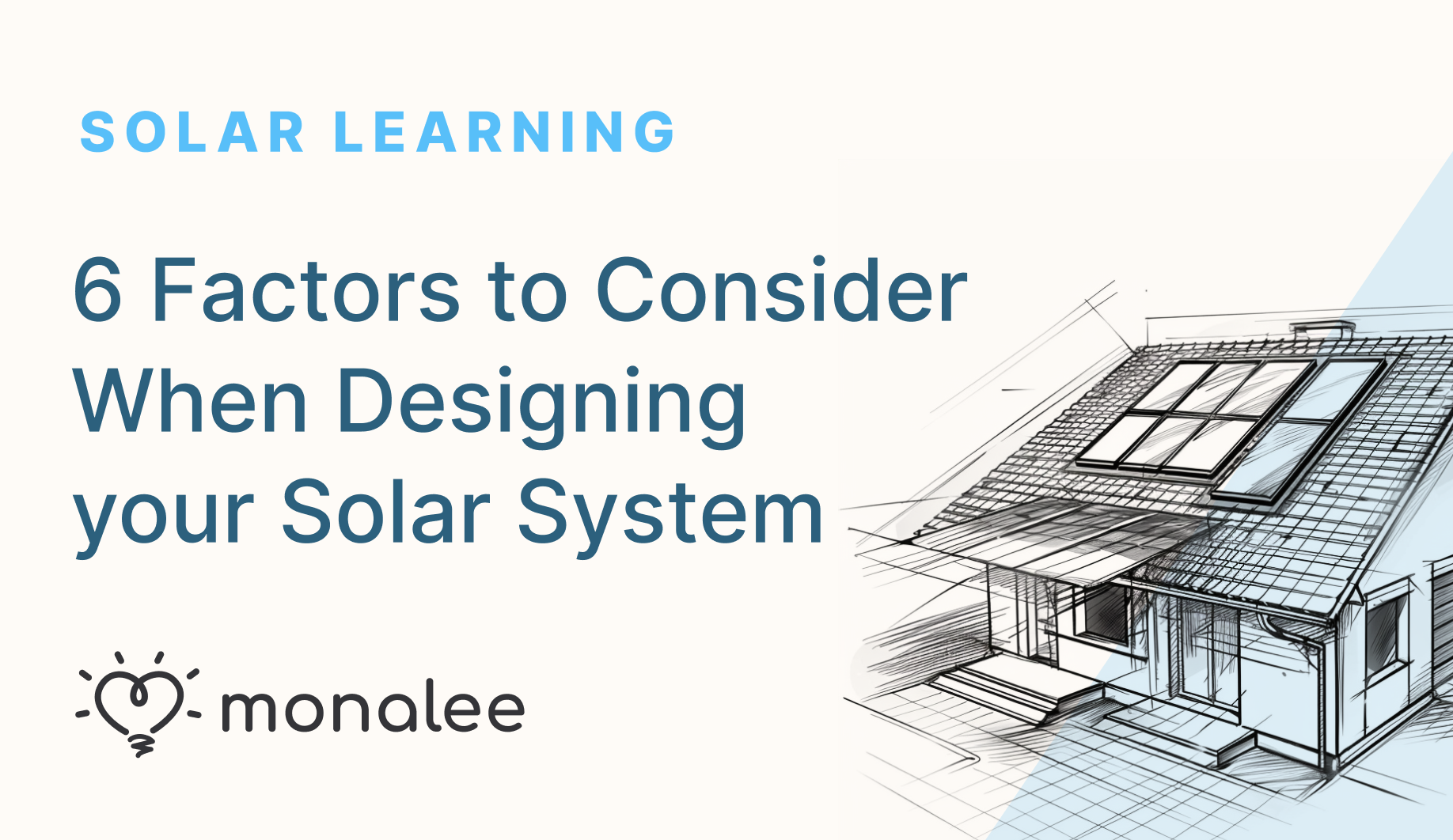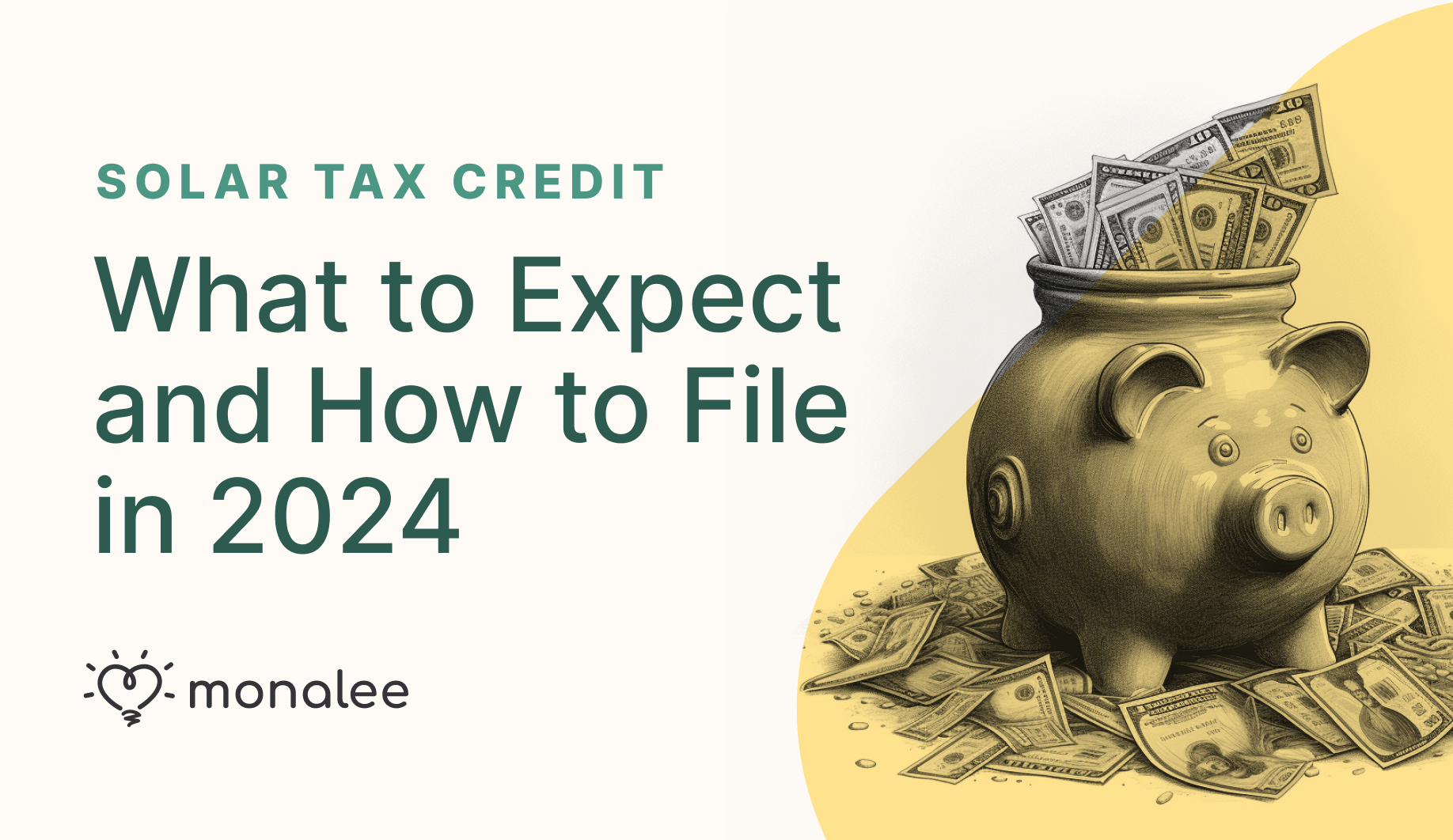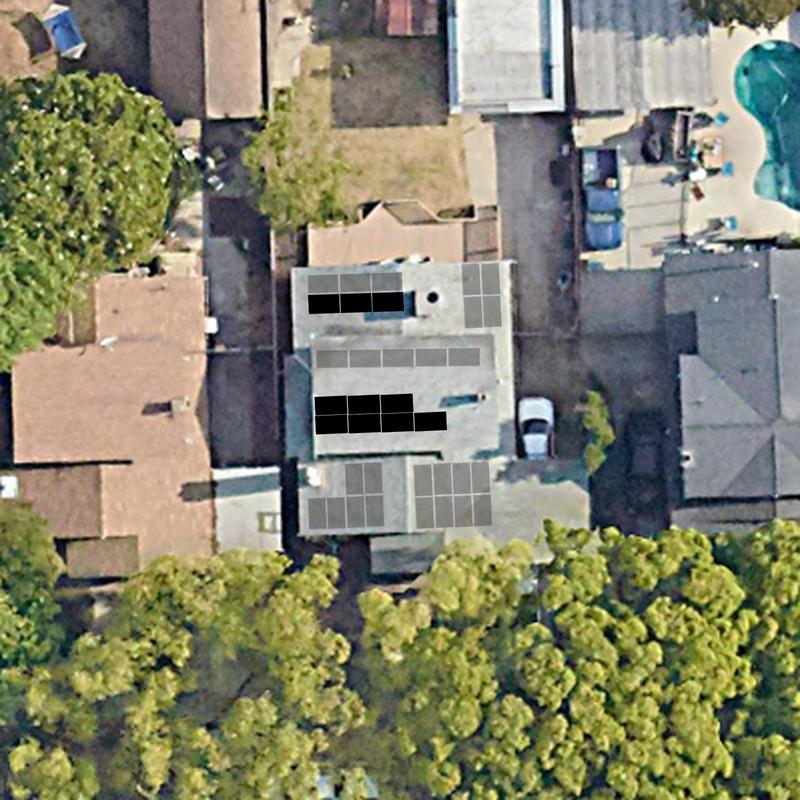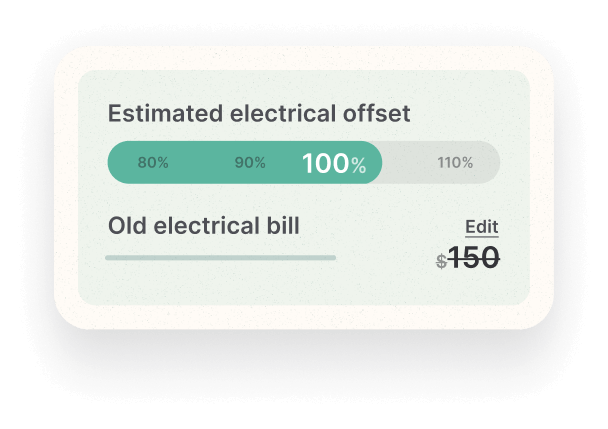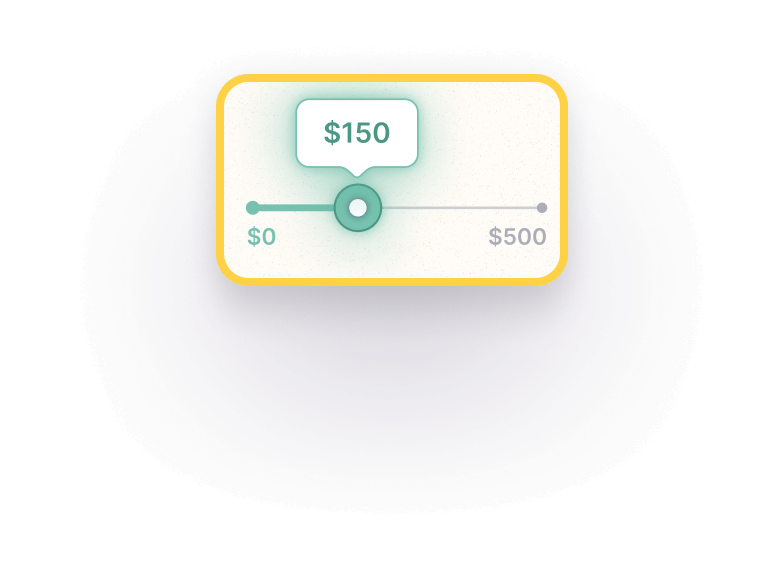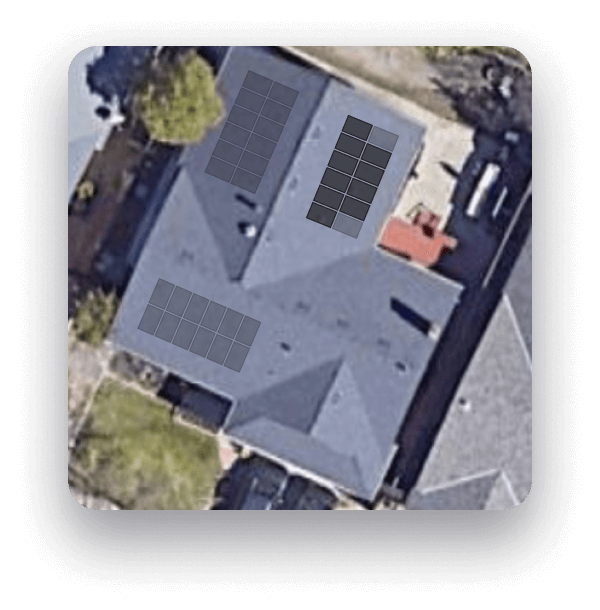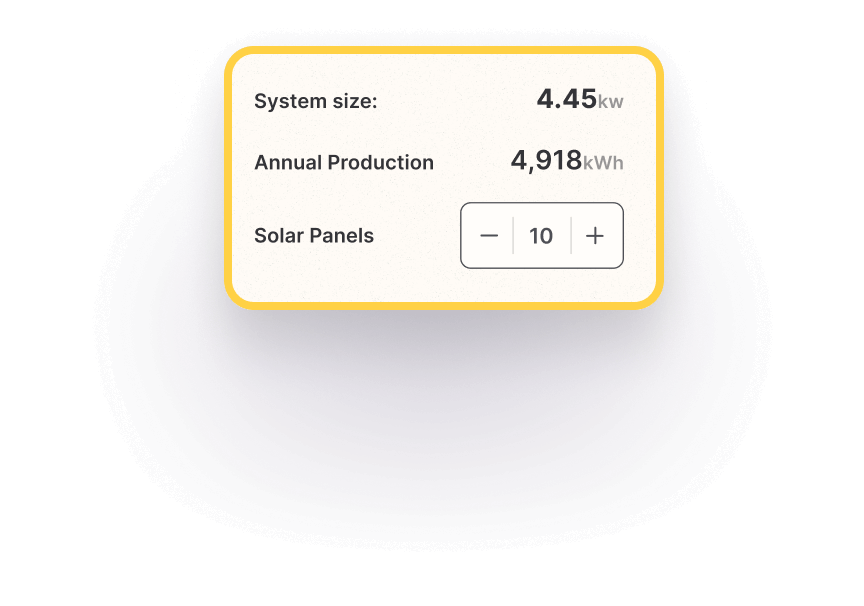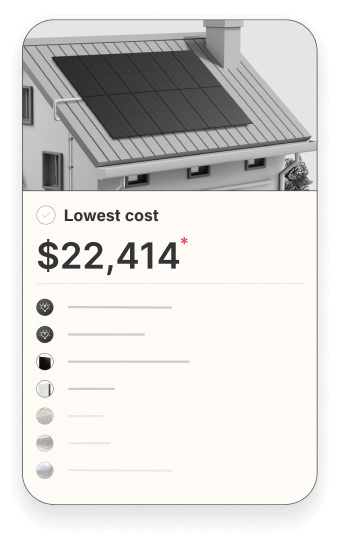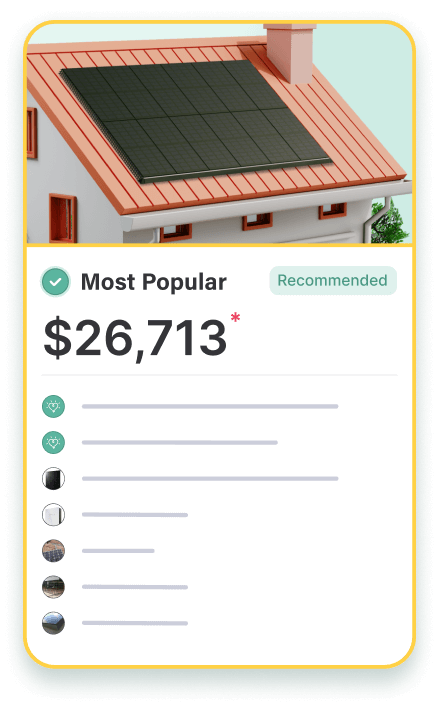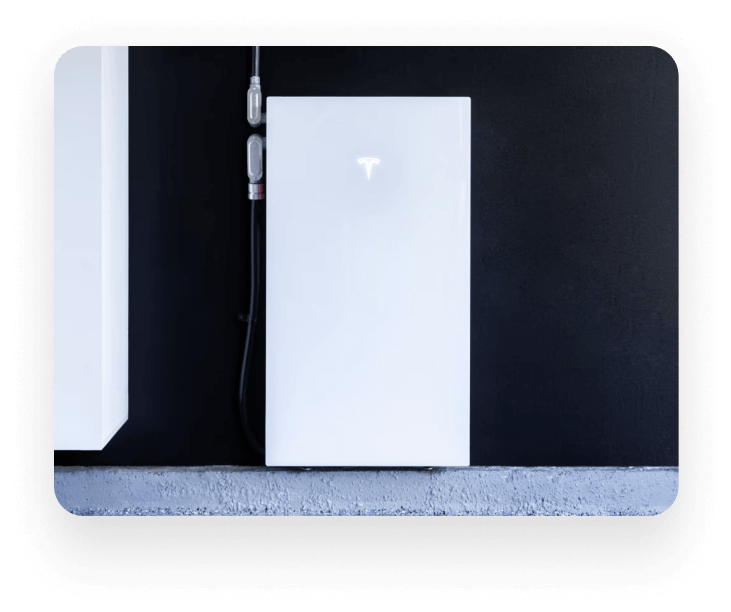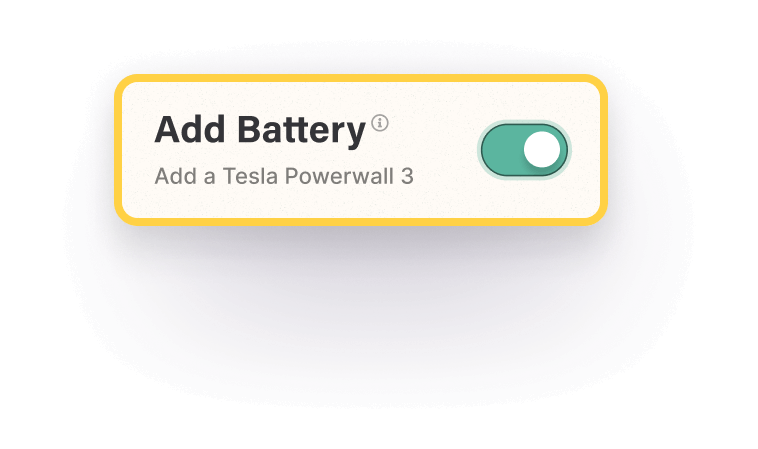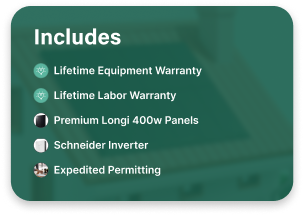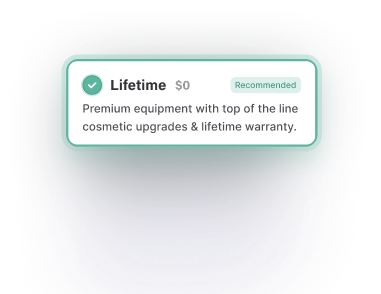One of the most frequently asked questions we receive here at Monalee is whether or not a homeowner should add a solar battery to their project. While solar batteries are not essential, we do find that nearly half of our customers choose to buy one or more solar batteries for their system.
In this blog post, we’ll explore the many benefits of buying a solar battery, how these devices work, and a few best practices for choosing a high-quality model.
What is a solar battery?
For homeowners making the switch to solar, investing in one or more solar batteries can be a smart long-term investment. Solar batteries are essentially a type of storage for the excess energy your home system produces. So, instead–or in addition to–feeding this extra energy to one’s local grid, you can use it yourself and power your home during off-peak hours when your solar panels are not generating enough power.
Using solar storage is a great way to be immune to electricity fare increases (since you are rarely, if ever, relying on the local grid) and can keep your home up and running during a power outage in your area.
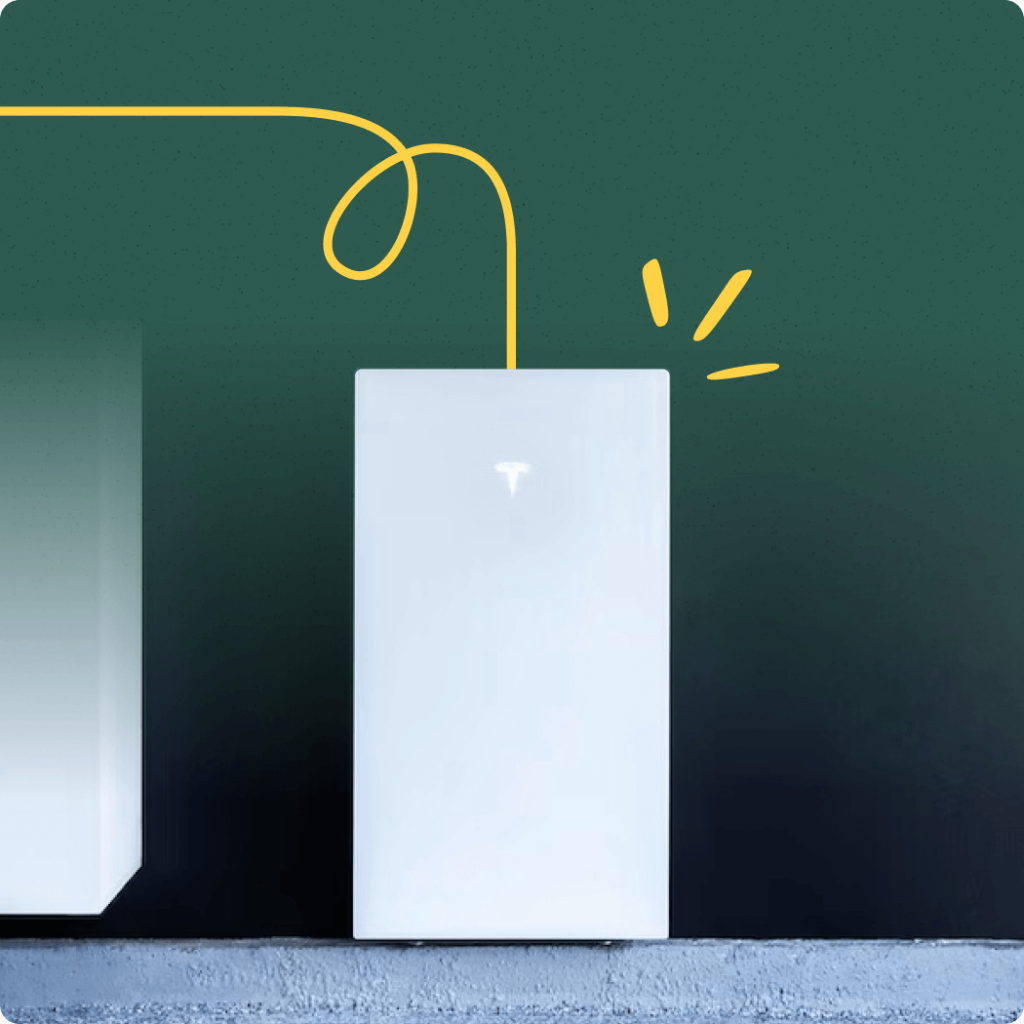
What are the pros and cons of solar storage?
We do a deep dive into the pros and cons of battery storage in a separate blog post, so for now, we’ll share a high-level overview of what to expect.
Pros
- In the event of a power cut or blackout, solar storage can ensure that your home’s main appliances remain operable.
- As you’ll be relying less on the local grid, you won’t have to worry too much about electricity fare increases. This definitely comes in handy during peak summer season, when you’re likely to have the air conditioning on full blast.
- Solar batteries are typically quieter than generators and safe both inside and outside the home.
Cons
- Cost can be a concern, especially if you plan to buy two or more batteries. They ultimately pay for themselves in the long-term but it’s still a significant upfront investment.
- Batteries come with specific safety concerns and it’s advisable to schedule regular maintenance checks to avoid overheating.
- One battery may not be enough to fully power your home during off-peak times. This largely depends on what your typical energy consumption looks like.
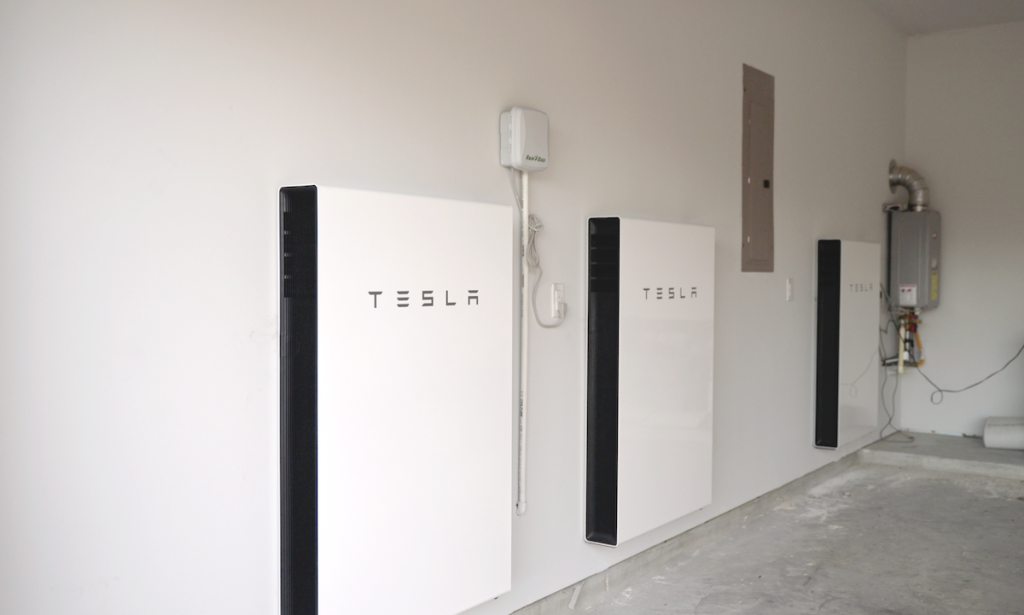
Types of solar batteries
Here’s a breakdown of the main types of solar batteries available for homeowners.
Lead acid batteries
This type of battery dates back to the 1800s, so it has definitely passed the tried and true test. The two main types of lead acid batteries include flooded lead acid batteries and sealed lead acid batteries.
A few popular models include:
- Trojan J185E-AC Deep Cycle Flooded Lead Acid Battery
- Deka Solar’s 8g30H Gel sealed lead acid battery
- Crown Battery’s Crown1 absorbent glass mat (AGM) Sealed Lead Acid Battery
Lead acid batteries are great for off-grid solar systems (which we don’t fully recommend and here’s why) or as an emergency backup during a power cut.
Lithium-ion batteries
At Monalee, we’re fans of lithium-ion batteries. We currently use the Schneider Boost for our installations and before that, we opted for Enphase’s IQ batteries.
Lithium batteries are on the pricier side—although we feel it’s warranted given how well they work—and might be out of budget for some homeowners. That said, lithium ion batteries are ideal for residential solar installations because they can effectively hold a lot of power in a limited amount of space.
As noted above, here are two popular lithium-ion battery models
- Schneider Boost
- Tesla’s Powerwall 3
- Enphase’s IQ
Nickel cadmium batteries
For home solar, you’re less likely to come across nickel cadmium batteries. Although these are pretty durable and don’t require much maintenance, cadmium is heavy metal that is toxic in certain concentrations.
Flow batteries
Considered more of an emerging technology in the energy storage space, flow batteries contain a water-based electrolyte liquid that flows between two separate chambers, or tanks, within the battery (source: SolarReviews). They’re gaining traction for large-scale installations and are less well-suited to residential solar.
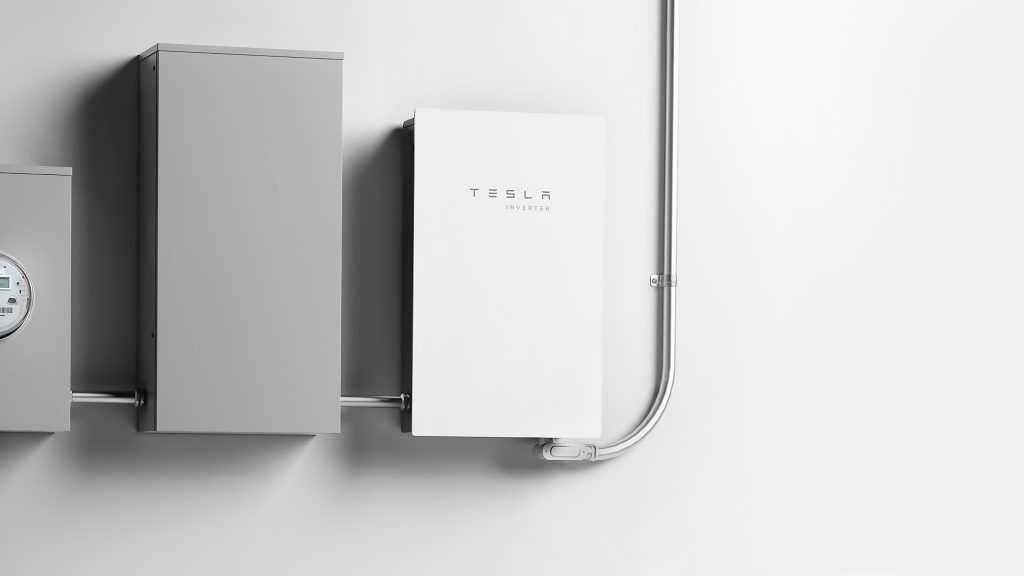
7 Factors to consider when buying a solar battery
Choosing a solar battery ultimately comes down to personal preference. However, here are a few considerations to make as you’re shopping around.
Cost
Choosing to buy one or more solar batteries does require a significant investment up front. On top of the initial purchase price, you’ll want to factor in additional costs for maintenance during the expected lifespan of the battery.
While some batteries may cost more than others, it could be worth it if that particular model has higher efficiency and a longer lifetime. Buying a ‘cheaper’ battery is tempting, but rarely worth it. These often require more routine maintenance checks that add up over time.
Size
Most solar batteries look fairly similar, although some are definitely larger or sleeker than others. It’s helpful to get clear on what the battery’s primary use will be–whether as a backup battery in the case of a blackout, or if you are planning to connect it to a grid-tied solar system. Based on this, you’ll be better able to narrow down your options and choose a brand and model that seamlessly integrates with your existing system.
Capacity
Understanding your home’s energy needs is helpful in determining what type of solar battery to buy for your solar system. Battery capacity refers to how much energy a battery stores at any given time and is usually measured in kilowatt-hours (kWh).
If you plan to buy one solar battery, you’ll probably want to go with a model that closely matches your average energy consumption. Homes that require a significant amount of energy to run will likely benefit from more than one solar battery.
Expected lifetime
Unlike solar panels, which typically have a lifespan of up to 25 years, solar batteries are closer to the 10-15-year mark. We use the Schneider Boost on our Monalee installs, and these include a 10-year comprehensive warranty.
It’s worth noting that batteries can still function beyond their warranty years but may not function quite as well. Battery lifetime is usually measured by the number of charge-discharge cycles the battery undergoes before performance slows down.
As WHC Solar explains, ‘a typical lead-acid battery may last between 200-1000 cycles depending on the type and usage pattern, while a Li-ion battery can last up to several thousand cycles.’ This means that batteries with longer lifespans are more cost-effective and sustainable for storing excess energy than batteries with shorter lifespans.
Efficiency
When researching which solar batteries to buy, play close attention to the efficiency ratings. Efficiency refers to how much excess energy from your solar panels can be stored within the battery for later use.
Battery efficiency is measured in percentages and refers to how effectively the battery converts and stores solar energy from your solar system. For example, the Tesla Powerwall 3 has a round-trip efficiency of 97-percent. This means that only 3% of power is lost before exporting to the grid.
Power rating
A solar battery’s power rating refers to the maximum amount of solar power that a battery can deliver at any one time. A power rating is expressed in watts (W) or kilowatts (kW) and determines how much energy the battery is capable of supplying to a solar system or to a load.
Backup loads are designated devices that are considered essential during a power outage. Many homeowners designate kitchen electronics, such as their refrigerator, stove, and heating as their backup loads. If a blackout does occur, these devices will continue working.
When deciding which solar battery to buy, you’ll want to understand both the maximum amount of power the battery can deliver in short periods of time as well as for sustained periods of time.
Warranty coverage
Last but not least, make sure that the solar battery you choose is under warranty. As mentioned earlier, batteries typically have 10 or 15-year warranties and in most cases, that’s really all you need. Unlike solar panels which are built to withstand all types of weather conditions, batteries stay in one place and are far less exposed to the elements.
In the rare event that your battery’s equipment manufacturer goes out of business, your best bet is to get an extended warranty from your solar company.
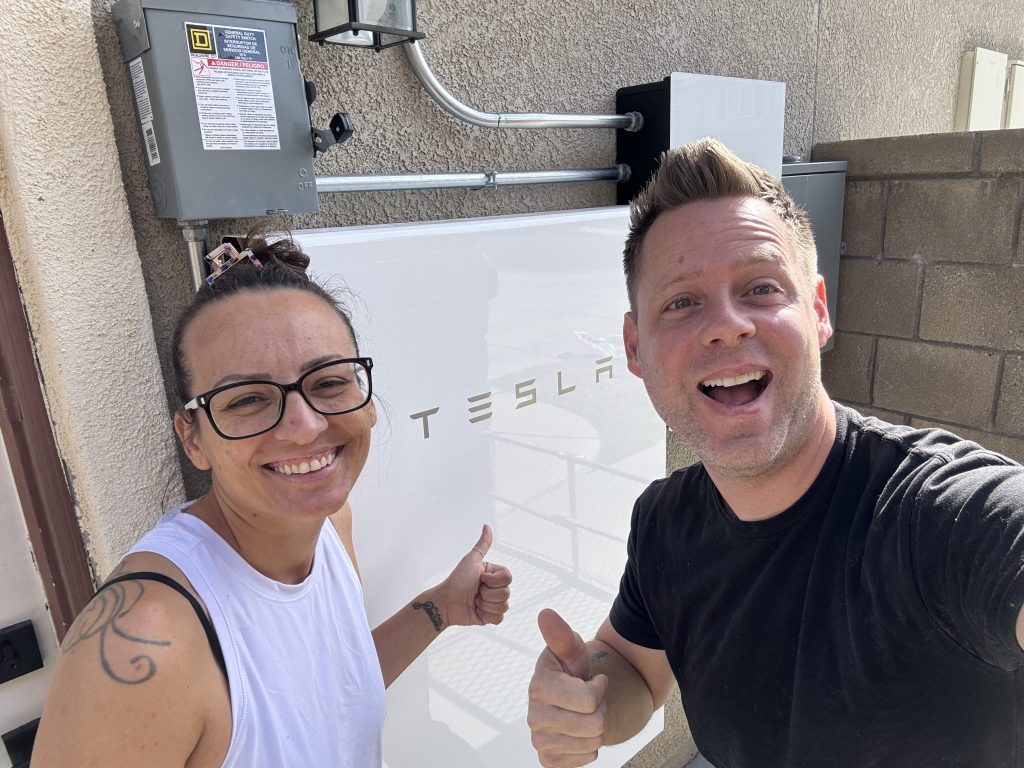
Final Thoughts
Buying a backup battery isn’t a prerequisite for going solar, but many homeowners find that the pros far outweigh the cons. Benefits to investing in solar storage include cost savings, increased energy independence, offsetting your carbon footprint, and having a backup power source if there’s a local power cut. When choosing which solar battery to buy, consider its efficiency, power rating, capacity, and whether it falls under warranty.



